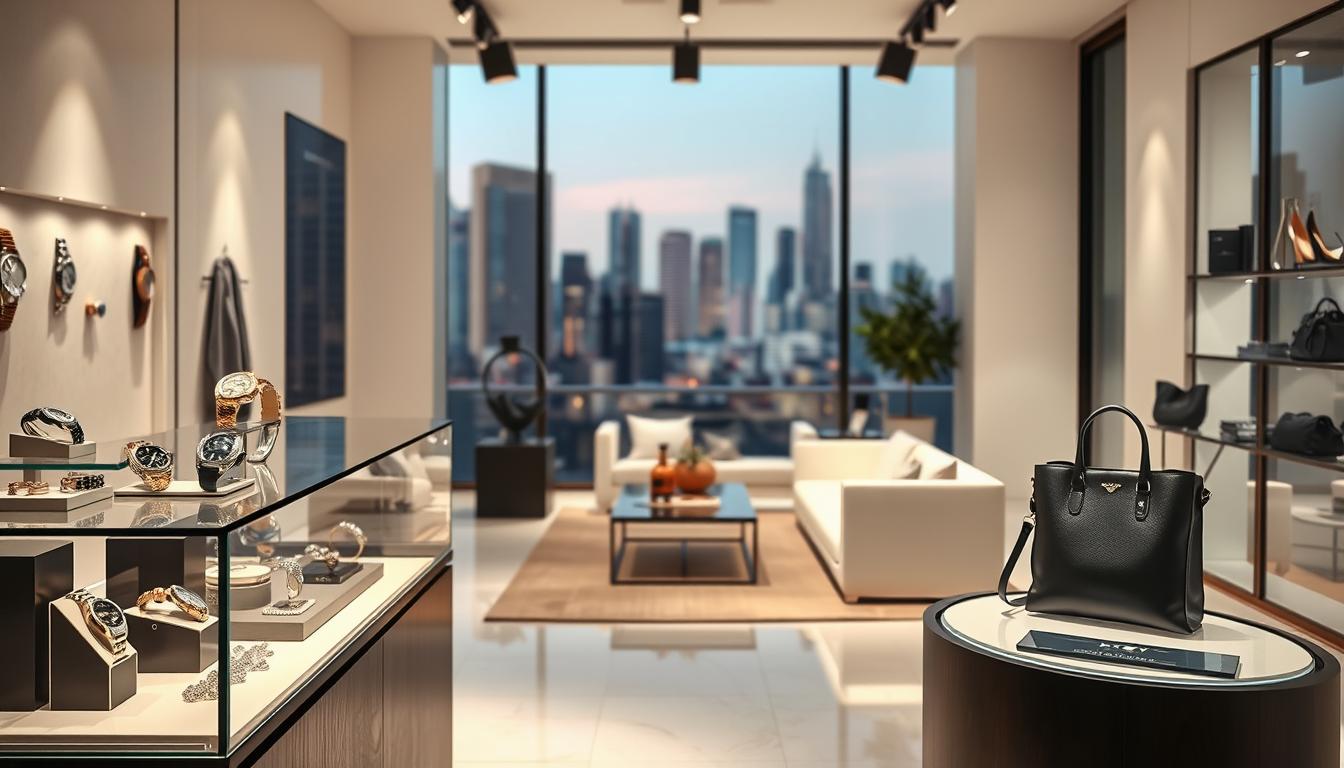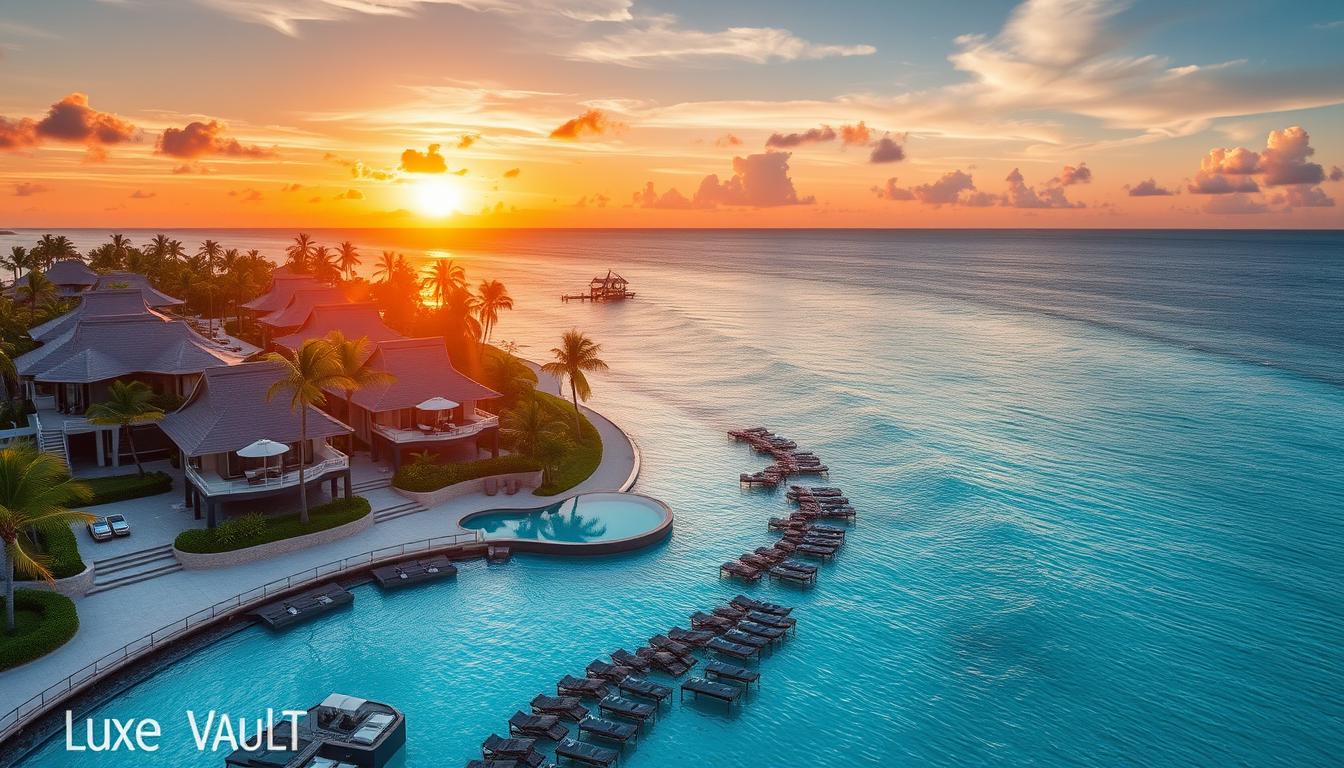The global luxury market is changing fast. Millennials and Gen Z are now leading the way in luxury spending. They are looking for quality and sustainability in their purchases, thanks to rising costs and a focus on lasting value.
Luxury brands are starting to change how they operate. They need to focus on better payment security and flexibility. Understanding what these younger buyers want is key for brands to stay ahead.
Key Takeaways
- Gen Z and millennials are driving the luxury market with their unique preferences.
- Quality and sustainability are key factors in their luxury purchasing decisions.
- Luxury brands are adapting to meet the demands of younger generations.
- Payment security and flexibility are becoming increasingly important.
- Brands must innovate to stay competitive in the evolving luxury market.
Understanding the Spending Power of Millennials and Gen Z
Millennials and Gen Z are gaining economic power. Their impact on luxury consumption trends is clear. You are a tech-savvy generation that shapes market trends.
Economic Factors Influencing Your Spending Habits
Economic factors shape your spending habits. A survey by Boston Consulting Group and Worth Media Group shows affluent Millennials prefer luxury goods over experiences. They value quality and exclusivity.
“The affluent Millennials are driving a significant shift in luxury goods spending, prioritizing high-quality products over experiences,” the survey notes. This shows a clear preference for luxury items that show personal taste and status.
The Rise of Social Media and Influencers
Social media has changed how you find and interact with luxury brands. Influencers and online platforms shape your views and choices. You see curated content that shows the latest trends and must-haves.
- Social media platforms like Instagram and TikTok are key for luxury brands to reach you.
- Influencers connect brands with consumers, making luxury more appealing and accessible.
Wealth Accumulation Trends Among Younger Generations
Wealth among Millennials and Gen Z is growing. This is due to better financial knowledge and smart investments. You tend to invest in things that grow in value, like luxury goods, real estate, and art.
Need Content Writing | Content Marketing | Digital Marketing | Social Media Marketing and More services? Contact us at raja@cowrit.com for professional help.
Luxury Purchases as a Form of Self-Expression
Younger generations see luxury items as a way to show who they are. The luxury market now offers many products. These items show status, taste, and style.
How Personal Identity Shapes Buying Choices
Your personal identity greatly affects what luxury items you buy. Luxury brands appeal to you because they match your sense of self. A designer handbag or luxury watch shows your personality.
Several things influence your choices, including:
- The desire to stand out and express individuality
- The need to belong to a certain group or community
- The appreciation for craftsmanship and quality
Luxury brands now offer a wide range of products. This ensures there’s something for everyone.
The Role of Exclusivity in Luxury Market Appeal
Exclusivity is key in the luxury market influencers world. Limited edition items and exclusive experiences make brands more attractive. This exclusivity adds to the luxury of owning these goods.
Luxury brands use different ways to be exclusive, such as:
- Limited production runs
- Personalized services
- Exclusive events and experiences
For 62% of Gen Z and 68% of millennials, the buying experience matters a lot. It shows how important memorable interactions with luxury brands are.
By focusing on exclusivity and personal identity, luxury brands attract younger generations. This drives their choices in the luxury market.
The Impact of Technology on Luxury Shopping Experiences
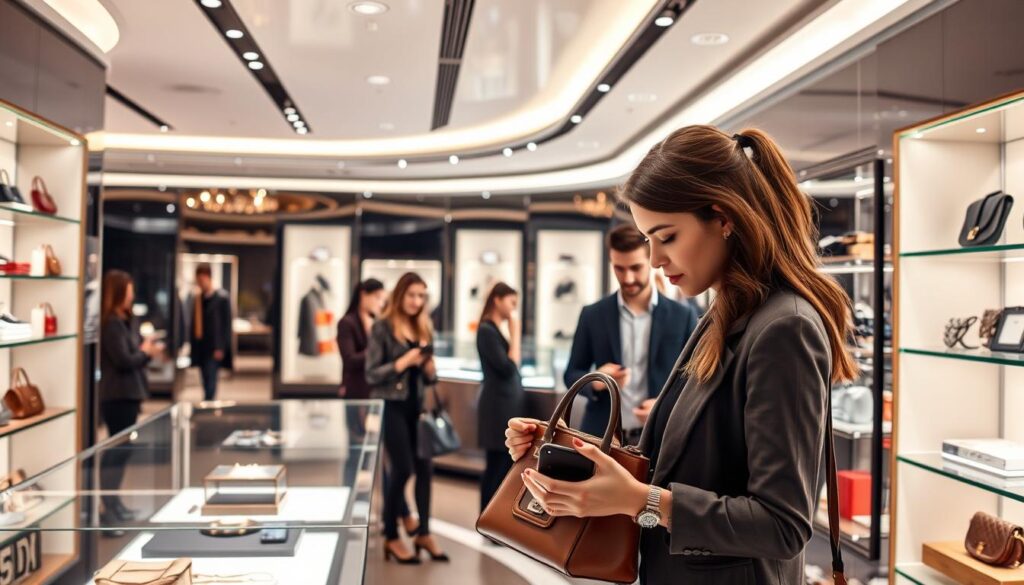
Technology is changing how we shop for luxury items. Now, luxury brands can offer more personalized and engaging experiences online.
Shopping for luxury goods online is key, with many wanting a smooth and quick experience. 62% of Gen Z and 68% of millennial luxury shoppers worry about payment issues and fraud. This shows the importance of secure and easy-to-use online platforms for luxury brands.
Seamless Online Shopping and Instant Gratification
A smooth online shopping experience is vital for luxury brands. They need an easy-to-use website, simple navigation, and secure payments. They also use virtual try-on and augmented reality to make online shopping better.
| Key Features | Benefits |
|---|---|
| Intuitive Website Design | Easy navigation and reduced bounce rates |
| Secure Payment Process | Increased trust and reduced cart abandonment |
| Virtual Try-On | Enhanced customer experience and increased conversions |
Importance of Mobile Accessibility and Apps
Mobile accessibility is now essential, not just a luxury. Luxury brands are creating mobile apps for a more personalized and convenient shopping experience. These apps offer personalized recommendations, exclusive deals, and easy checkout.
Many luxury brands use mobile apps for personalized shopping experiences. They use data analytics and AI to give customers tailored suggestions and offers. This makes shopping more enjoyable.
If you want to learn more about digital marketing for your luxury brand, consider talking to experts. They can help with content marketing, social media, and more.
The Shift Toward Sustainability in Luxury Brands
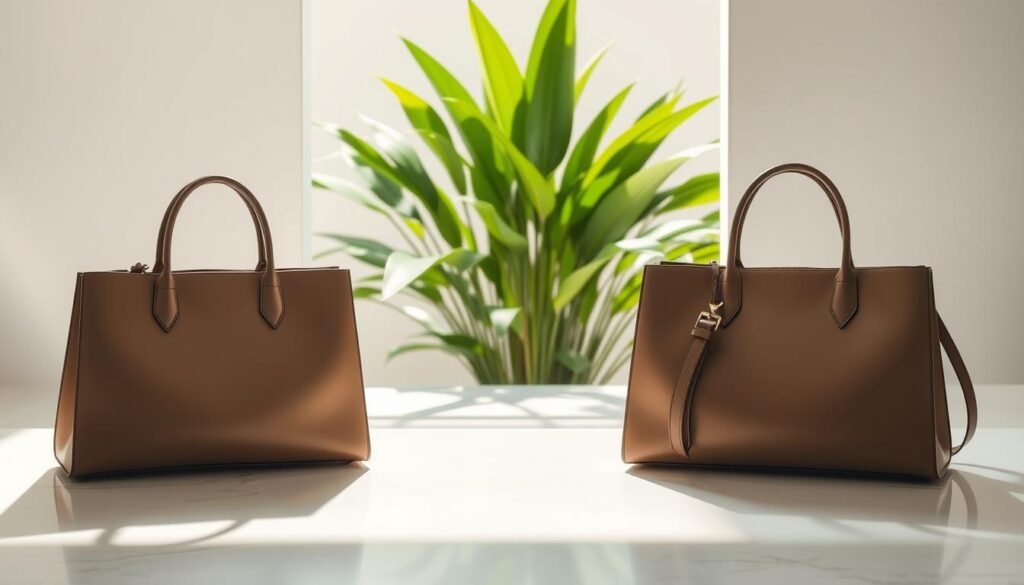
Sustainability is now key for luxury brands to win over younger shoppers. As people care more about the planet, luxury brands are going green. They’re changing to meet Gen Z and millennials’ demands for eco-friendly choices.
Eco-Friendly Practices and Their Appeal
Luxury brands are now using sustainable materials and cutting down on waste. They’re making products with recycled materials, organic cotton, and reused fabrics. These green steps attract eco-aware buyers and boost the brand’s image.
Recent studies show that 76% of Gen Z and 75% of millennials are ready to spend more for brands they trust. This shows how important sustainability is in their shopping choices. For more on sustainability in luxury, check out Hallandpartners.
| Generation | Willingness to Pay More for Sustainable Brands |
|---|---|
| Gen Z | 76% |
| Millennials | 75% |
How Your Values Influence Brand Loyalty
Your values shape your loyalty to a brand. When a brand matches your values, like sustainability, you’re more likely to come back. This bond strengthens your loyalty to the brand.
For luxury brands, being open about their green efforts is key. They must keep improving their eco-friendly actions. This attracts eco-conscious buyers and builds a loyal fan base.
If you’re curious about our content marketing services or have questions, reach out to us at raja@cowrit.com.
The Connection Between Experiences and Luxury Purchases
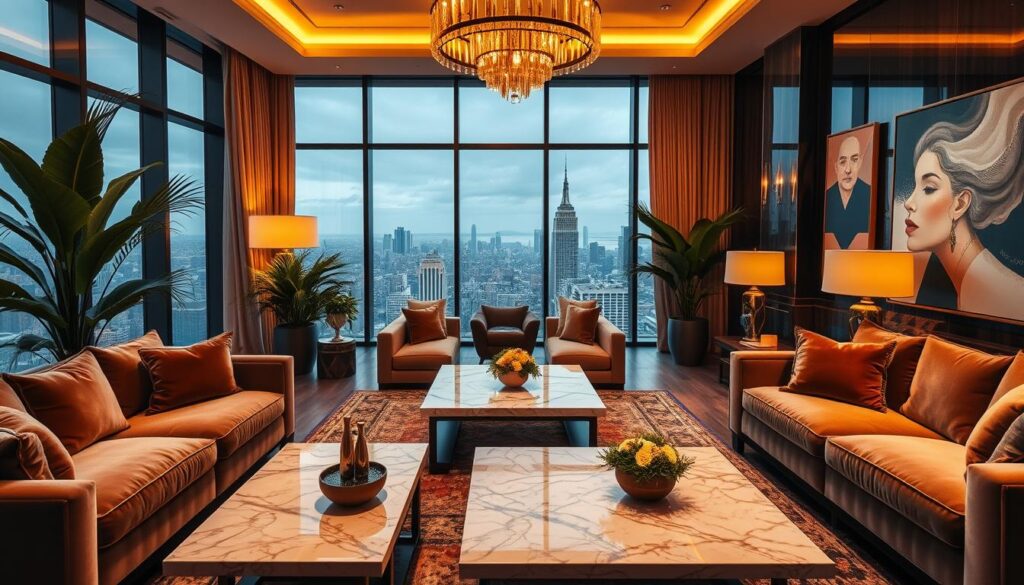
The way we experience luxury is changing. Now, people focus more on unique experiences than just products. This shift is led by millennials, who are redefining luxury for themselves.
Prioritizing Experiences Over Physical Goods
Millennials are spending more on luxury experiences than on goods. In fact, 54% have bought luxury experiences in the last year. They seek experiences that connect them deeply with the brand.
These experiences can be anything from luxury travel to private fashion shows. They create lasting memories and build brand loyalty. As a consumer, you’re not just buying a product. You’re looking for a story, a memory, or a status symbol.
“The experience economy is not just about delivering a service, it’s about creating a memory that will last a lifetime.”
Unique Offerings That Attract Younger Consumers
Luxury brands now focus on unique experiences for younger consumers. They offer bespoke services, limited-edition products, and exclusive events. For example, some brands provide personalized shopping experiences with stylists or designers.
| Experience Type | Description | Appeal to Younger Consumers |
|---|---|---|
| Bespoke Services | Personalized services tailored to individual preferences | High |
| Limited-Edition Products | Exclusive products available for a limited time | Very High |
| Exclusive Events | Access to events not available to the general public | High |
By providing these unique experiences, luxury brands attract and keep younger consumers. They want to be part of a story, feel exclusive, and have lasting memories.
For more insights on luxury marketing strategies, contact us at raja@cowrit.com.
The Role of Branding in Shaping Luxury Purchasing Decisions
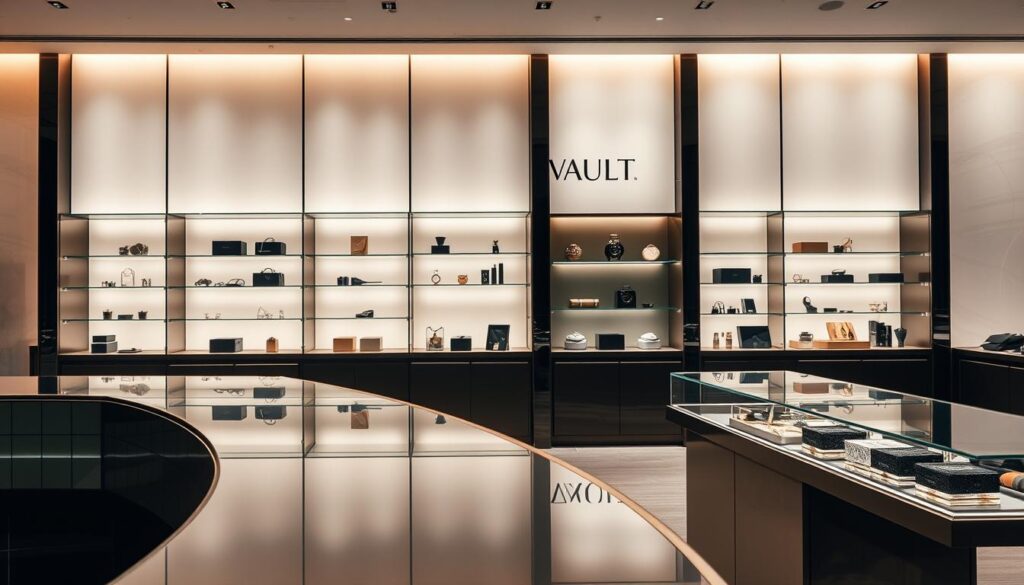
Luxury brands have a big impact on your buying choices. They must balance prestige with authenticity for Millennials. This balance is key to avoiding feelings of materialism and inauthenticity.
Brand Storytelling and Its Influence on You
Brand storytelling is a key tool in luxury. It connects you emotionally with the brand. This makes the luxury experience more personal and engaging.
When a brand shares its heritage and craftsmanship, it adds value. This value goes beyond the product itself.
- Emotional Connection: Stories create an emotional bond with the brand.
- Brand Heritage: Knowing a brand’s history and values deepens your appreciation.
- Craftsmanship: The story of skilled artisans adds meaning to your purchase.
The Importance of Authenticity and Transparency
Younger generations value authenticity and transparency in luxury brands. You want to trust that the brand is honest about its practices and values. This trust is built through authenticity and transparency.
- Honest Marketing: Truthful advertising and clear product benefits are essential.
- Sustainable Practices: Openness about environmental and social efforts boosts appeal.
- Clear Communication: Regular updates keep you informed and engaged.
To learn more about luxury brands adapting to younger consumers, contact us at raja@cowrit.com. We offer content marketing services.
Creating a Personalized Shopping Experience
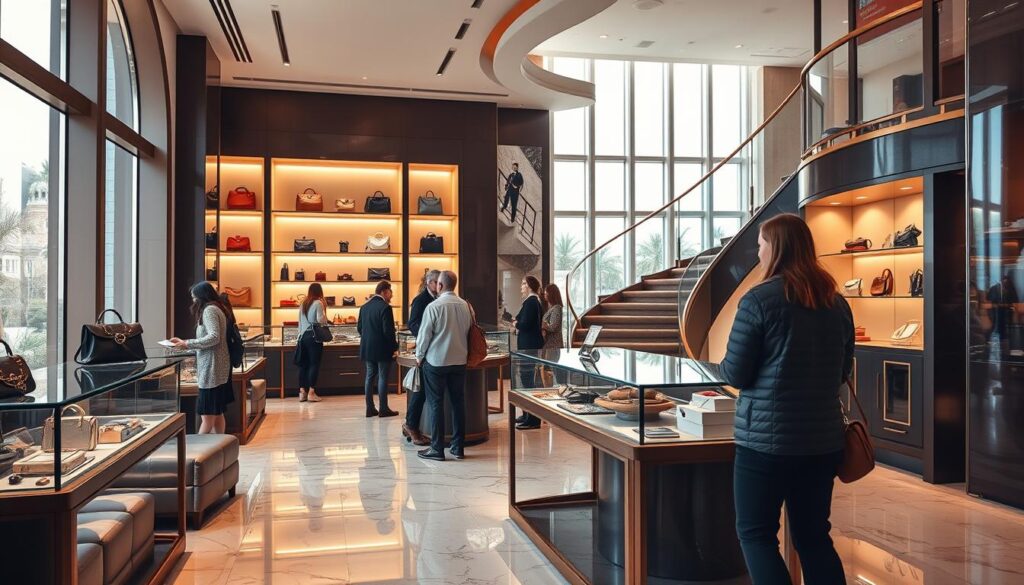
Luxury brands are changing to meet the needs of young shoppers. They focus on personalizing the shopping experience. This is because millennials and Gen Z want experiences that show who they are.
Recent surveys show that 73% of millennials and 64% of Gen Z want quality items. They want things that last. This is a chance for luxury brands to offer experiences that go beyond what they expect.
Customization Options in Luxury Items
Luxury brands now offer customization. This lets young shoppers show off their style. They can choose from bespoke fashion to personalized accessories.
For example, some fashion houses let you add monograms to your items. Others offer custom tailoring for a perfect fit. This way, you can express your personal style.
How Brands Use Data to Enhance Your Experience
Luxury brands use data to understand what their customers like. They analyze this data to make their marketing better. This helps them suggest products that fit your taste.
Some retailers use this data to send you special offers. They also create loyalty programs just for you. This makes your shopping experience better and builds loyalty.
| Personalization Strategy | Impact on Customer Experience | Example |
|---|---|---|
| Data-Driven Recommendations | Enhances shopping experience through relevant product suggestions | Personalized email campaigns with tailored product recommendations |
| Bespoke Services | Offers unique and exclusive experiences | Monogramming services for luxury handbags |
| Loyalty Programs | Fosters brand loyalty through exclusive rewards | Early access to new collections and exclusive events |
By mixing customization with data, luxury brands can offer a unique shopping experience. For more on our content marketing services, email raja@cowrit.com.
The Influence of Peer Recommendations on Luxury Purchases
In today’s world, what your friends say online matters a lot when you’re thinking about buying luxury items. Gen Z, the generation you belong to, has grown up with social media. This means you’re used to sharing and getting advice from others online.
This has made it so that what others say online really affects your choices. You might decide to buy something based on what your friends have said.
The Power of Online Reviews and Testimonials
Online reviews and testimonials are key when you’re looking to buy something fancy. You check what others have said to see if a product is good. A good review can make you trust a brand more, which might make you want to buy from them.
Studies show many people trust online reviews as much as they trust their friends. This shows how important it is for brands to keep a good image online and for happy customers to share their stories.
Community Engagement through Social Media
Social media is where luxury brands connect with their fans. You follow your favorite brands on Instagram, Facebook, and Twitter. They share special stuff, deals, and events with you.
This engagement creates a community feeling. People talk and share about the brand. For example, fashion brands work with influencers and ask for your content. This makes their brand more popular and keeps their fans coming back.
Need Content Writing | Content Marketing | Digital Marketing | Social Media Marketing and More services? Contact us at raja@cowrit.com.
It’s clear that what your friends say online has a big impact on your luxury purchases. You’re part of a big group that influences and is influenced by these opinions. Brands that get this and adjust their strategies are more likely to win your loyalty.
The Global Reach of Luxury Brands Targeting Younger Consumers
Luxury brands are now reaching out to younger people all over the world. This change is because millennials and Gen Z have more money to spend. They are becoming very important in the luxury market.
These brands are moving beyond places like Paris, Milan, and New York. They are going into new markets in Asia and the Middle East. Young people in these places are excited to buy luxury items.
Expanding Beyond Traditional Luxury Hubs
New markets are joining the traditional luxury spots. Countries in Southeast Asia, like Indonesia and Vietnam, are seeing a big increase in luxury item demand. Younger people are leading this trend.
- Online platforms are making luxury brands more accessible to younger consumers worldwide.
- Social media influencers are playing a key role in promoting luxury brands globally.
- Brands are changing their marketing to fit local tastes and cultures.
Cultural Influences on Buying Preferences
Culture plays a big role in what younger luxury buyers want. Brands that get and respect local cultures do better in different markets.
Luxury brands are adding local designs to their products. This makes them more appealing to young people in various areas. It also helps them connect better with their audience.
Key cultural influences include:
- Local traditions and customs.
- Regional fashion trends.
- Social media trends and influencer marketing.
If you want to learn more about luxury brands adapting to these changes, or need help with content or digital marketing, contact us at raja@cowrit.com.
Understanding the Shift in Luxury Brand Collaborations
The lines between high-end and streetwear are getting fuzzy. This change comes from younger people’s love for luxury. Luxury brands are teaming up with streetwear labels to make unique, sought-after items.
Collaborations Between High-End and Streetwear Brands
High-end and streetwear brands are teaming up more often. These partnerships let luxury brands reach the streetwear market. They bring together the coolness of streetwear and the luxury of high-end brands.
For example, Louis Vuitton and Supreme’s collaboration is a hit. It shows how high-end and streetwear can create something amazing. These partnerships attract both old and new customers, thanks to their unique mix.
As someone who loves fashion, you’re likely to be drawn to these collaborations. Social media plays a big role in promoting these limited-edition items.
“The collaboration between luxury and streetwear is a game-changer. It’s not just about the product; it’s about the experience and the statement it makes.” – Fashion Expert
Limited Edition Drops and Their Appeal to You
Limited edition drops create excitement and boost sales. By making products scarce, brands make you want to buy them fast. This strategy works well with young people who love new trends.
The appeal of these drops is their exclusivity. You want to be part of a special group that gets these unique items. Plus, their rarity makes them great for sharing on social media.
| Brand Collaboration | Limited Edition Product | Marketing Strategy |
|---|---|---|
| Louis Vuitton x Supreme | Monogrammed Box Logo Hoodie | Social Media Campaigns |
| Gucci x Dapper Dan | Logo-Embossed Leather Jacket | Influencer Marketing |
| Versace x Fragment Design | Medusa Logo T-Shirt | Pop-Up Events |
To keep up with the latest collaborations and drops, subscribe to your favorite brands’ newsletters. Follow them on social media too. For more on luxury shopping and collaborations, email us at raja@cowrit.com for our content marketing services.
The Future of Luxury Purchases Among Young Consumers
The luxury industry is changing fast. It’s important to know what drives young people to buy luxury items. You and your peers are shaping the market with your tastes and habits.
Predictions for the Luxury Market
Bain says Millennials will make up 50% to 55% of global luxury sales by 2030. This shows a big change in who buys luxury goods. Younger people will keep having more influence in the market.
Emerging Trends
Millennials and Gen Z are leading the charge in luxury spending. You value things like sustainability, exclusivity, and personal experiences. Luxury brands are starting to offer these things to meet your needs. For more on luxury trends, email us at raja@cowrit.com.
